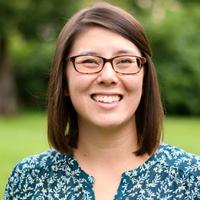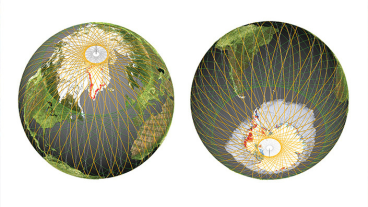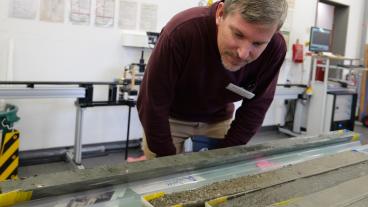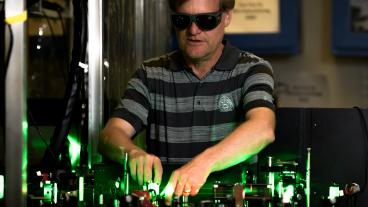New fellowship program helping to turn Mines faculty research into startup reality
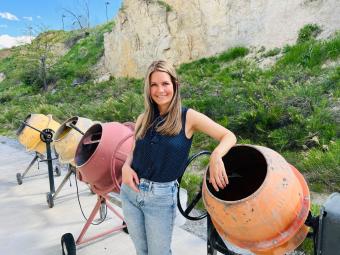
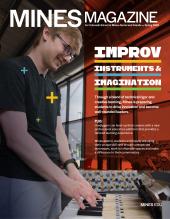
Lori Tunstall never really pictured herself as an entrepreneur.
The assistant professor of civil and environmental engineering has been researching concrete durability and sustainability since her days as a graduate student at Princeton University. After earning her PhD, she did a postdoc, spent a few years conducting research at a national lab and then got her first tenure-track academic position at Mines.
“I never thought about starting a business as a viable option,” Tunstall said. “Being an entrepreneur isn’t something you’re ever really exposed to unless you know someone—it’s not a career path that gets discussed much.”
But when her academic talks about the distinctive jet-black concrete she was developing in her lab at Mines—packed with carbon-sequestering biochar without sacrificing the durability, malleability and low cost of regular concrete—started getting noticed by industry representatives, they all had the same question: When is this going to be commercialized?
“It occurred to me that instead of teaching everyone else how to do it, I should just do it myself and sell it to them,” Tunstall said.
Luckily, Tunstall and other budding faculty entrepreneurs at Mines can take advantage of the growing Mines Entrepreneurship and Innovation Ecosystem, which supports Mines-grown research that is ready to launch from the lab.
“No one can sell the technology better than the person who invented it, and that’s something that investors and customers love,” said Zack Bennett ’99, director of the Beck Venture Center.
Support through a new Faculty Startup Fellowship
A key way the Beck Venture Center is supporting faculty entrepreneurs is through the creation of a new Faculty Startup Fellowship. Faculty members get one year of complete or partial course relief—reducing or eliminating the courses they have to teach each semester—with the option to extend to a second year, along with monthly check-ins and support from the Venture Center.
“The beauty in something like this is helping faculty de-risk the technology so that they can make super big decisions in their lives,” Bennett said. “Startups are hard enough—the stats are 9 out of 10 startups completely fail—but with faculty, they’ve worked so hard, focused their whole career on getting a tenured position and now they’re at this tricky place: they have a world-class technology that should be commercialized and could be the foundation of a $1 billion company, but is it too risky for them?”
For Tunstall, the inaugural Faculty Startup Fellow, both the time away from teaching and the regular check-ins have been incredibly valuable since she started her fellowship in January 2025.
“I have hours of meetings with investors and potential customers and travel commitments—all of that would have been impossible to do while teaching without sacrificing the quality of the class offerings,” Tunstall said. “It’s really empowered me to be intentional about building the commercialization effort.”
She named her company ZeroTwelve, a reference to the atomic weight of carbon.
“Concrete represents about 8 percent of all man-made CO2 emissions—that’s equivalent to all of the passenger vehicles on the globe right now,” Tunstall said. “It’s got a huge impact, and it’s considered a hard-to-abate industry because the CO2 emissions are part of the process itself—to produce cement, you take limestone, calcium carbonate (CaCO3), and turn it into free lime, calcium oxide (CaO), which releases CO2.”
ZeroTwelve’s patent-pending concrete tackles that challenge by replacing upwards of 50 percent of the cement in the mix with biochar, the umbrella term for the carbon-negative materials produced from biomass sources, such as wood chips and agricultural waste, without any decrease in strength.
“It’s a light lift for the concrete industry and it has huge environmental benefits,” Tunstall said. “We hope to see it on sidewalks, on roadways, on foundations. It’s distinctive, too—you can actually see the carbon being sequestered.”
The advantage of investing in Mines faculty innovations
From a university perspective, investing in faculty entrepreneurship pays dividends on multiple fronts. Mines owns the intellectual property of faculty-developed technology and gets a percentage of the companies formed to commercialize them. Their success is Mines’ success.
“Mines is super well respected, one of the best engineering schools in the world. The investor community is really interested in the faculty research coming out of here,” Bennett said. “The companies they want to see are the ones commercializing Mines IP, those big, juicy, world changing-type companies.”
Just as important, Bennett said, is the impact on campus culture that faculty-driven startups can have.
“We want researchers that have an entrepreneurial spirit to come to Mines because we create an environment that nurtures innovation and gives them lots of support and flexibility,” he said.
Currently in the seed stage, ZeroTwelve is in its first fundraising round and has laboratory trials happening at global ready-mix producer sites. “The next big step will be scaling up to conduct pilot studies,” Tunstall said.
“I don’t want to see it die in the lab,” she said. “I want to see it flourish in the real world.”
Another Mines connection is making ZeroTwelve possible
Howard Janzen ’76, MS ’77 stepped in to be the company’s CEO. Janzen is a seasoned entrepreneur and dedicated supporter of the Beck Venture Center and felt that taking an active role in Tunstall’s business to help it find success was a natural fit.
This culture of support across the Mines community also ensures that innovative ideas emerging from the university have a greater chance of thriving in the real world and driving lasting change.
“Mines is at the forefront of technologies addressing some of the biggest challenges facing society today,” Janzen said. “E&I skills help promote and sharpen the ability to drive change and deliver the superior outcomes that result from not sticking with the status quo.”

